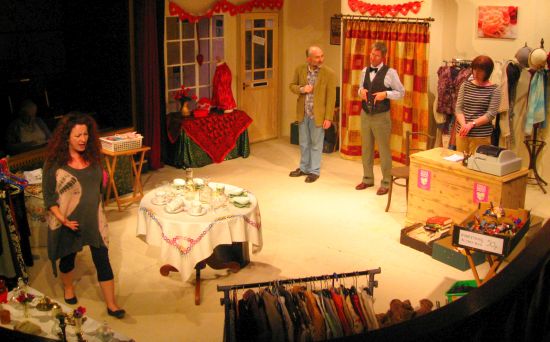GOOD THINGS
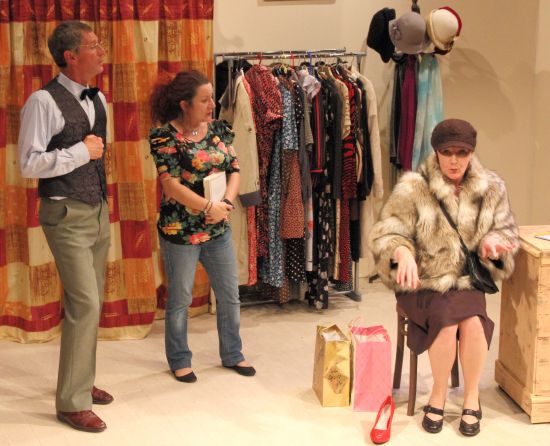
Theatre sages often say that only two things matter for a play to be successful – good writing and clever casting. All credit, then, to director Christine Ward for astute choices on both counts with her fizzing production of Good Things at the Pateley Bridge Playhouse.
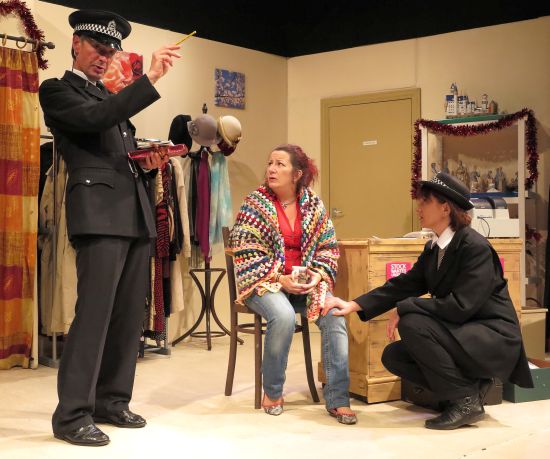
Written by Scottish playwright Liz Lochhead, Good Things is billed as a comedy but that description belittles its true depth. Sure, it’s funny – often hilarious – but Lochhead is also an acclaimed poet and it shows. She uses the rhythms and registers of language to chart lives in all their broken glory – loneliness, insecurity and abandonment are poetically examined through the conventional plotlines of bereavement, failed marriage and faltering old age. There is so much loss here, yet still we laugh. Now that’s good writing.
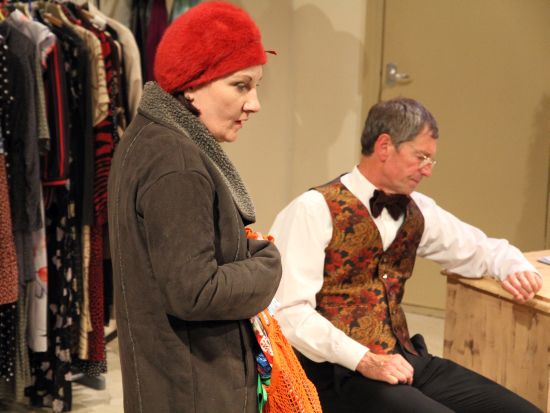
Of course it takes a superb cast to pull it off and this is where Pateley Bridge Dramatic Society reigns supreme. It is blessed with some truly talented actors and Good Things features four masters of the craft, two of whom take on six characters each in an astonishing display of speed and versatility.
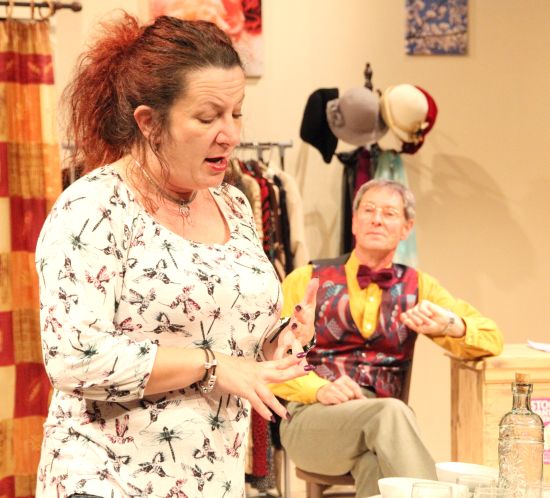
The play is set in a charity shop – a cannily appropriate setting to peer into the human condition – where we find volunteer worker Susan in the throes of a midlife crisis after being dumped by her husband for a younger woman. Rachel Smith was utterly convincing in the role: tough, rooted and emotionally true. She perfectly captured Susan’s resilience and warmth while punctuating the stoicism with anguished reflection and outbursts of anger.
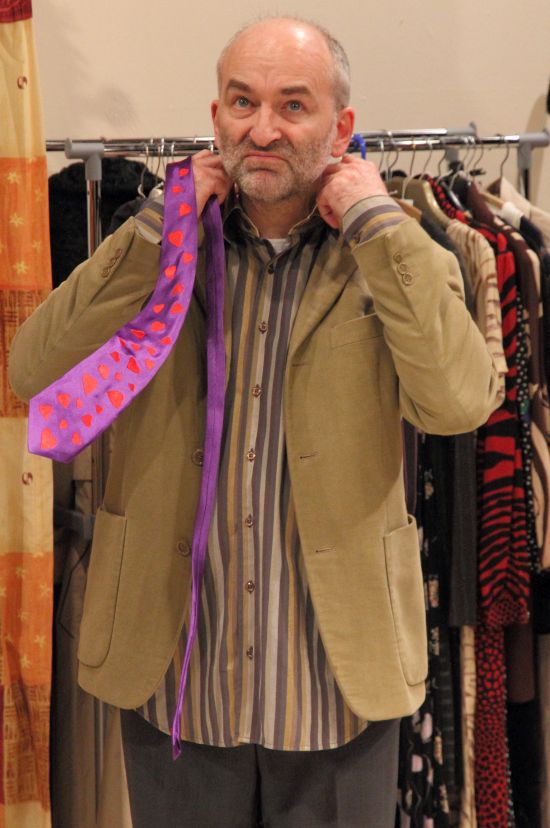
Into her choppy life walks David, a widower donating his late wife’s clothes to the shop who – after a series of misunderstandings, double entendres and near misses – waltzes her towards a happy ending. Steve Rouse is a compelling actor and he pitches the character of David brilliantly, maintaining an air of quiet desperation as he comes to terms with his loss. His Act 2 reflection on the nature of bereavement was profoundly moving and resonated long after the audience had left the theatre.
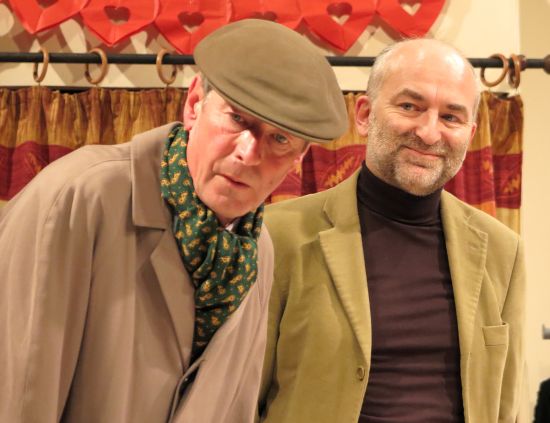
Naturally Susan’s trajectory towards contentment is a rocky one. How many coping strategies do you need for a broken marriage, upstart mistress, senile father and stroppy teenager? Speed dating clearly wasn’t going to be one of them, despite the kindly efforts of her co-worker Frazer played by a wonderfully empathetic Michael Thorne. A thoughtful, decent chap, he also had a touch of the lost soul about him and Michael hinted at the shadows with great skill and perception.
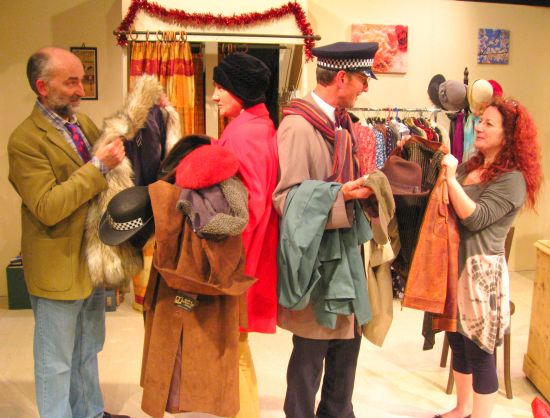
He also proved an accomplished multi-tasker as he took on a series of additional cameos including Susan’s frail, confused dad and her heartless ex-husband. His timing and characterisations were spot on. It would have been an easier option for the director to allocate all the parts to separate actors but the piece would have lost its quirkiness, and her trust was well founded in both Michael and his fellow six-role actor Carol Bailey.
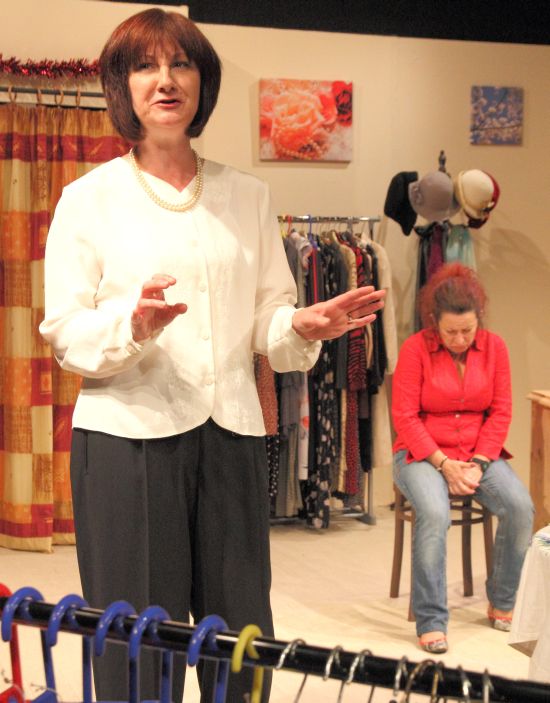
The scene-stealer of the evening, Carol gave a consummate multiple performance which was so fast, furious and funny that the audience scratched its collective head in amazement. Marvellously pompous and patronising as heart-of-gold shop manager Marjorie, she also morphed into tricky customer Scouse Doris ( with a cracking Liverpudlian accent) as well as both the mistress and daughter-in-law of the piece. Despite the speed of the costume and personality changes, she didn’t miss a beat.
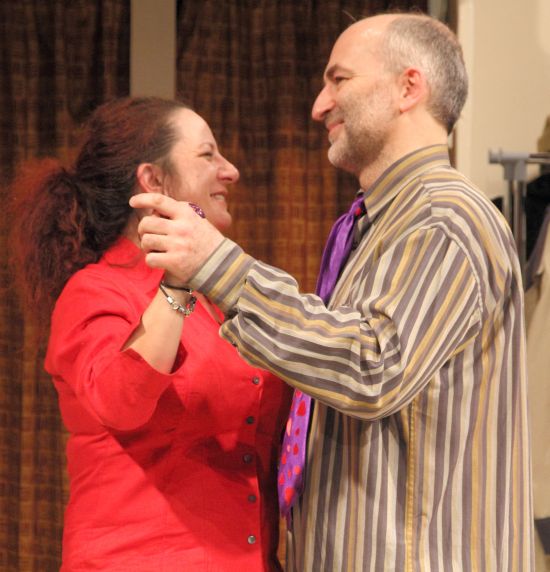
Although Marjorie was clearly a comic turn, Carol Bailey’s clever portrayal ensured she was not one -dimensional. In one witty but poignant scene, she encapsulated the emotional paradox of Good Things with a very funny account of an imperfect family Christmas. It was the classic tears- of- a- clown soliloquy. In fact the entire content of this play could be summed up as lost souls with funny bones. That’s a formidable challenge for both director and cast- and they nailed it.
Cheryl Barber
